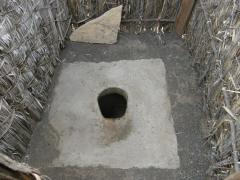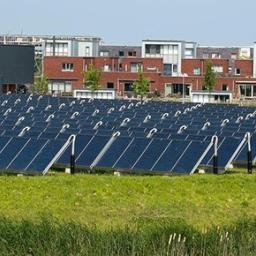Keeping global environmental assessments fit for purpose
Global environmental assessments play an important role in environmental governance. They provide insights in causes and consequences of environmental change, as well as possible solutions, by synthesizing advancing scientific knowledge. To retain their value for environmental policy in the future, regular maintenance to these assessments is required to respond to changing dynamics in science, policy and society.
PBL has studied the role of global environmental assessments, such as those produced by the Intergovernmental Panel on Climate Change (IPCC), Intergovernmental Science-Policy Platform on Biodiversity and Ecosystem Services (IPBES) and the United Nations Environment Programme (UNEP). These assessments are commonly produced in highly structured processes, tuned to the context of decision-making the assessment is intended to inform. That context can change, including due to a growing number of assessments, increasing involvement of non-state actors in environmental governance, and science no longer being self-evidently authoritative. For future assessments to remain policy relevant, it is important that they take the dynamics in this context into account.
Options to keep global environmental assessments fit for purpose
This report offers several options to adjust assessment processes to changing dynamics in science, policy and society:
- Target and involve non-state actors
- Improve coordination between niches in the assessment landscape
- Align the assessment format with its purpose
- Deal explicitly with different worldviews and values
- Back the activities that support assessment production and use
Make use of strategic moments
The suitability of these options depends on the purpose the assessment serves, including in relation to other assessments. For instance, many recurring assessments contain windows of opportunity, particularly in-between assessment cycles, to discuss the purpose, audience and scope of a future iteration of that assessment. Assessment decision-makers can use these moments for a strategic reorientation of the assessment. To achieve a thorough consideration that allows for substantial changes, they should allocate sufficient time and space for this discussion.
Reflections on the global science-policy interface for food systems
As a follow-up to the report and at the request of the Dutch Ministries of Foreign Affairs and Agriculture, Nature and Food Quality, PBL produced a brief note with reflections on the global science-policy interface for food systems, in collaboration with the WUR. This note aims to informs the discussion on strengthening the global science-policy interface for food systems and offers several options available to policymakers in the context of the UN Food System Summit set to launch in September 2021.
Authors
Specifications
- Publication title
- Keeping global environmental assessments fit for purpose
- Publication subtitle
- Challenges and opportunities for a changing context
- Publication date
- 6 August 2020
- Publication type
- Report
- Page count
- 62
- Publication language
- English
- Product number
- 3492




